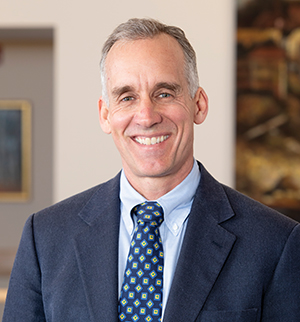This is a sponsored supplement, which first appeared in Business NH Magazine's Health Care Handbook in the April 2021 issue.

Emergency medicine providers thrive off being where patients are when they need help the most. To go through a health emergency with another human being, to be extensively trained and qualified to help them through that emergency while absorbing their anxiety and reassuring them at the same time is an honor and a driving force behind my 25-year medical career.
Unlike most risk-adverse business leaders, emergency medicine (EM) physicians find satisfaction in not knowing what is coming through the door next. The EM field is filled with team players who work well with people from all walks of life. It’s not trauma that we find most challenging; rather, it is concern that people in our community may not seek the care they need for a variety of reasons. For myself and other health care leaders, it is also the relentless challenge of creating systems, building capabilities, and streamlining processes that deliver the best possible care.
At Alice Peck Day Memorial Hospital (APD) in Lebanon, NH, where I serve as Chief Medical Officer and an emergency physician, our mission to improve the health and wellbeing of our community is readily evident in all of our undertakings. We have made changes and investments that are laser-focused on continuously improving the care and services we provide to patients. That includes joining the Dartmouth-Hitchcock Health (D-HH) system in 2016 with an over-arching goal of integrating key services and functions to ensure sustainability of high quality, accessible, and cost effective care for those in our service region. It also includes our 2019 transition to an electronic health record utilized by many members of the D-HH system. That effort unified emergency, hospital, and clinical systems while delivering a safe and secure digital health record to patients across the APD campus and through other organizations in the D-HH system, including Dartmouth-Hitchcock Medical Center (DHMC), Cheshire Medical Center, and New London Hospital. A unified health record improves the continuity of care for patients and helps avoid costly duplication of tests and services.
As of April 2021, our emergency department is fully staffed by board certified, EM-trained physicians who also provide emergency care at DHMC. Their presence through this regional staffing model enables APD to manage more acute cases in our small and intimate setting that affords short wait times to care, (usually under 20 minutes) and brings an added level of confidence and familiarity to the community we serve. These physicians have gone through a 3-to-4 year specialized residency in emergency medical care. Next, they sat for rigorous board certification. Finally, they are required to seek re-certification on a regular basis.
If transferring a patient from the APD emergency department is necessary, DHMC is just 7 minutes away and is the state’s only Level 1 adult and pediatric trauma center. DHMC is D-HH’s flagship hospital, and the system itself serves a population of 1.9 million patients across northern New England and provides access to more than 1,800 providers in almost every area of medicine.
This staffing model is a win-win partner-ship: emergency room wait times will be more balanced across the community as patients receive excellent emergency care from board-certified EM physicians.

Michael Lynch, MD, MBA is chief medical officer at Alice Peck Day Memorial Hospital. He earned his undergraduate degree from Dartmouth College, received his medical degree from the University of Virginia, and completed his residency in emergency medicine at Hennepin County Medical Center in Minnesota. He also holds a physician executive MBA from Brandeis University.

 Current Issue - April 2024
Current Issue - April 2024